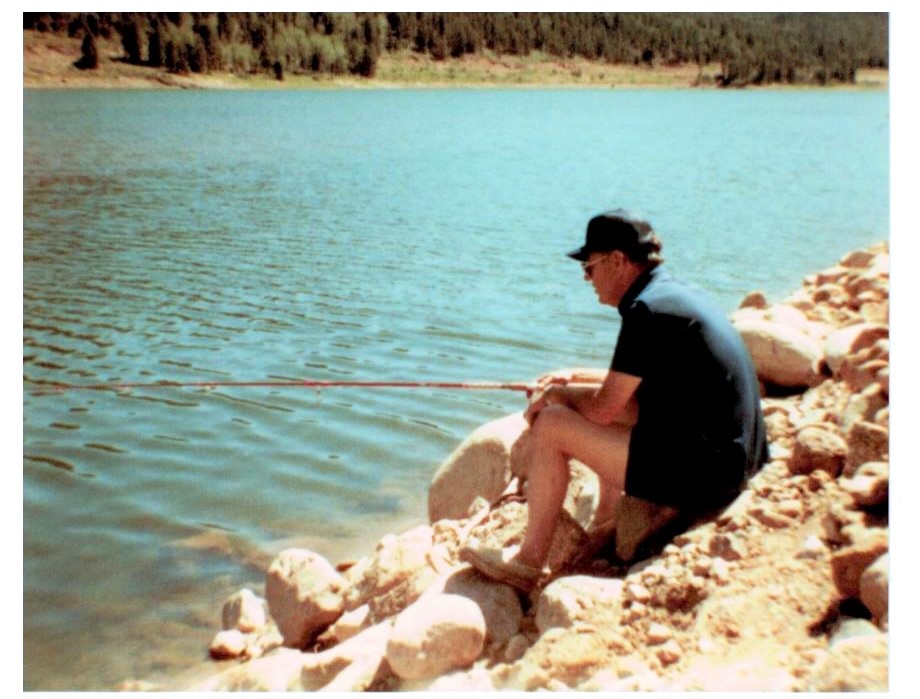
My dad, my favorite amateur (as in, non-professional) grammarian, died last week at the age of eighty-six. Dad could, in one breath, chide me for ending a sentence with a preposition and quote Winston Churchill’s famous comment on pedantry. From my father, I learned both the love of language and the frustration of perfectionism.
As a child, I imagined myself to be more like my father than my mother. After all, I had his big, dark eyes, his patrician nose, and sturdy, rectangular German face. I saw him as analytical, brilliant, and in his silence which I reflected much of the time, distant. He was affectionate and protective with me, but he was a man in his own head more often than not, a trait he passed on to his children.
Although Dad was always in thought, that didn’t prevent him from holding me next to him while he watched the BBC or Cronkite, then later carrying me to my room and tucking me into bed. He was no “sit down to a play tea party” dad, nor did I want that, as I was the child that stayed in my room and listened to my 45s and read books or played alone most happily.
In my teens, this kind of arms-length parenting continued but I never felt unloved. I admired him and wanted all the more to be like him. I was going to be a scientist like him (with writing on the side). I was going to do it all right. I was going to make him proud of me.
You can see where that’s going, right?
I got pregnant (magic!) at eighteen and Dad and Momma were none too happy, but they gritted their teeth and we all got through it. On the other side of the turmoil was an amazing little girl with whom he immediately fell in love. (Look dad! No ending preposition.)
The shift in him, from man in his head to the man interacting with the world was subtle but visible. After my first husband and daughter and I moved home for a short time to get on our feet, Dad and Momma developed a strong bond with their first granddaughter, and Dad softened. On one occasion, my older brother dropped by for a visit. Dad stood up, strode to my brother, greeted him, and hugged him for the first time in possibly years. My brother and mother stood with mouths agape.
Later, when I remarried, he not only accepted but loved and respected my second husband. In the long run, he respected my late-gained degree and would ask me biology and medical questions.
Another expansion of his awareness occurred years later when my niece’s son was born and survived a harrowing birth. I spoke to him not long after. With a trembling voice, this longtime avowed agnostic told me, “someone or something kept [his great grandson] with us.”
Daddy spent sixty-four years with his one great love. After Momma died, he shuffled around the nursing home where the two of them had shared a room for some time. He died a little more than two weeks before the anniversary of Momma’s death.
Over the years, I have evolved to be more like my mother in many ways, both emotionally and physically: more chatty, more approachable, and more padded around the middle. Yet I carry much of my father’s skepticism and contrariness with me. Over the years, Dad had evolved in many ways but, toward the end, he retreated, understandably, back into his own head where, I imagine, he and his wife were whole and happy again. When I spoke to him last he said, uncharacteristically for that curmudgeonly old grammarian, “I love love you completely.” I knew what he was telling me. That he was probably saying goodbye for the last time. I just thought he was mistaken.
I love love you completely, Dad. I will miss you always.
Last Updated on May 28, 2025 by Lee Ellis



Great tribute to your father KC!
A wonderful tribute. My condolences.
I’m sorry for your loss! (proper card to follow). Your dad sounds like a great guy.